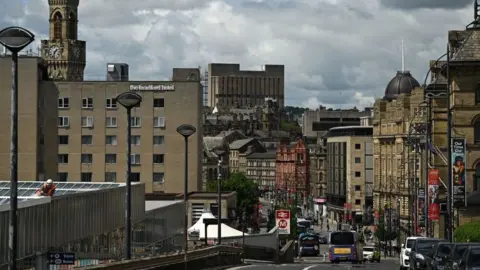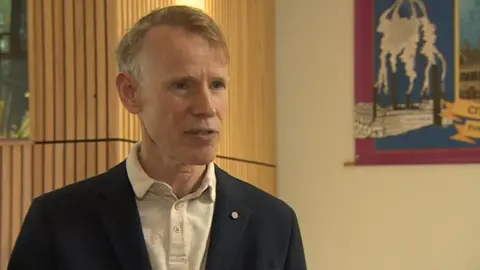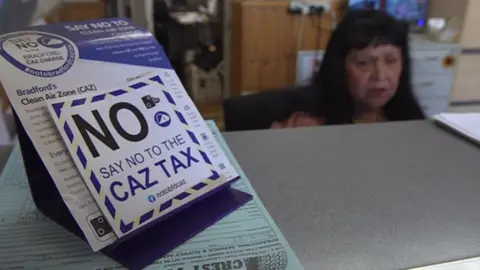Bradford clean air zone: Early signs 'positive', says health chief
 OLI SCARFF/Getty Images
OLI SCARFF/Getty ImagesEarly signs air quality has improved in Bradford have been seen a month after the introduction of a Clean Air Zone (CAZ), health chiefs have said.
Charges for drivers of the worst-polluting lorries, vans and taxis were introduced on 26 September.
Those that do not meet emission standards face a daily fee of between £7 and £50 to enter the city centre.
Despite its apparent success, the scheme has also attracted some criticism.
Bradford Council was ordered by the government to implement a CAZ to achieve targets for air quality after several areas of the city were found to be exceeding the legal pollution limit levels for Nitrogen Dioxide (NO2).
Research found that one in five children in the city had problems with their breathing.

Prof John Wright, a doctor and epidemiologist, and director of the Bradford Institute for Health Research, said: "Air pollution is one of the greatest threats to the health of the public - and for too long air pollution levels in our cities across the country have been breaching legal standards.
"Bradford is the first city in the north of England to do something about it," he said.
He said early indications showed that air quality was already improving
"We wouldn't expect it to happen just after a month, but it looks positive," he added.
However, critics have said a lot of drivers were confused about whether they had entered the CAZ or not, with some local businesses reporting losing trade.
Cindy Holmes, owner of a Bradford-based tyre company, said they had been "losing customers hand over fist" since the charges came in.
"After being in Bradford for 49 years, we don't know what the future holds," she added.

Meanwhile, the owner of a car lot said customers were shunning diesel vehicles wrongly believing they would be charged to enter the zone.
A Bradford Council spokesperson said the zone was well signposted and an initial assessment showed no significant traffic displacement.
However, it was too early "for us to make robust statements about the impact on air quality, revenues and charges", they added.

Follow BBC Yorkshire on Facebook, Twitter and Instagram. Send your story ideas to yorkslincs.news@bbc.co.uk